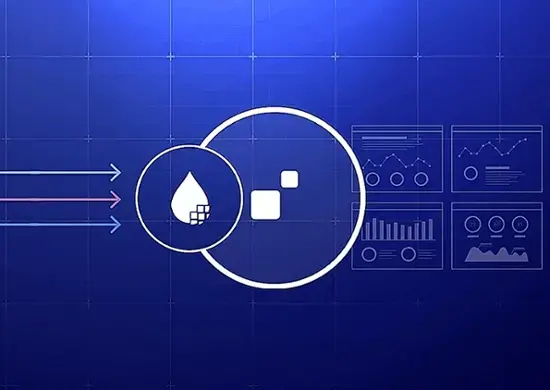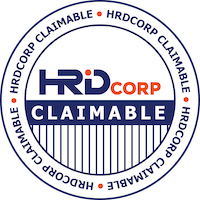Apache Nifi and Kylo
Master enterprise data flow management with Apache Network Interface (NiFi) and Kylo under expert guidance. Enroll in our comprehensive training program tailored specifically for data engineers and architects seeking to build scalable data lake solutions and streamline complex data processing workflows.
- Available in:
- Malaysia

Corporate Pricing
Pax:
Training Provider Pricing
Pax:
Features
Subsidies

What you'll learn
- Build and manage data ingestion workflows using NiFi processors and connections
- Integrate Kylo with NiFi for enterprise metadata and feed management
- Apply best practices for optimizing Kylo and Hadoop performance in production
- Create and utilize NiFi templates, process groups, and expression language
- Develop data confidence feeds and implement SLAs for data quality assurance
- Install, configure, and navigate Apache NiFi architecture and components
- Implement data transformation and attribute extraction techniques effectively
Why should you attend?
This comprehensive training program provides hands-on experience with Apache Network Interface (NiFi) and Kylo, two powerful tools for building robust data lake architectures and managing enterprise data flows. Students begin by exploring data lake fundamentals and dive deep into Apache NiFi's architecture, including core components like FlowFiles, processors, connections, and process groups. The course covers essential NiFi operations from installation and configuration to building complex data ingestion and transformation workflows. The curriculum progresses through practical NiFi implementation, covering processor management, data ingestion techniques, attribute extraction, and data transformation capabilities. Students learn to leverage NiFi's expression language, work with templates, and organize workflows using process groups, ports, and funnels. The training then transitions to Kylo integration, exploring its architecture and role in managing NiFi templates and metadata. Advanced topics include building data ingestion feeds through Kylo, implementing data confidence measures and Service Level Agreements (SLAs), and performing data wrangling operations. Students gain practical experience with template import/export processes and learn industry best practices for optimizing both Kylo and Hadoop performance in enterprise environments.
Course Syllabus
Day 1
Short Break
15 minsShort Break
15 minsRecap and Q&A
15 minsLunch
1 hourShort Break
15 minsShort Break
15 minsShort Break
15 minsRecap and Q&A
15 minsEnd of Day 1
Ratings and Reviews
Instructor
Tarun Sukhani is a distinguished professional trainer and consultant with over 25 years of comprehensive industry experience spanning multinational corporations across the US, Europe, Asia, South America, and the Middle East. His extensive background encompasses senior executive roles including CIO/CTO, director, and board member positions at renowned organizations such as Dell, AMD, and Experian, as well as regional conglomerates like Indra in Asia Pacific. This diverse corporate experience provides him with unique insights into enterprise-level challenges and solutions across multiple business functions including HR, Finance, Operations, Sales, Risk Management, Engineering, and Accounting. As a highly sought-after trainer, Tarun specializes in an impressive array of cutting-edge technologies and methodologies. His expertise spans Agile/Scrum/SAFe frameworks, enterprise architecture (TOGAF/COBIT/ITIL), cybersecurity (CISSP/CEH/CISO), project management (PRINCE2/PMP), Big Data technologies (Hadoop/Spark), Data Science with Python and R, DevOps practices, Machine Learning/AI, cloud computing, blockchain technologies, and modern development frameworks. This comprehensive skill set enables him to deliver training across the entire technology spectrum, from foundational concepts to advanced implementations. His training delivery extends throughout the Asia Pacific region, including Malaysia, Indonesia, Philippines, Thailand, and Singapore, where he has successfully conducted workshops and training programs for both large enterprises and SMEs. Tarun's client portfolio includes industry leaders such as Dell, AMD, Western Digital, Singtel, CIMB, Digi, Tenaga Nasional, and Sime Darby, demonstrating his ability to work with diverse organizational cultures and technical requirements. Academically, Tarun holds exceptional credentials including an MSc in Information Systems and MBA in Finance and Operations Management from Loyola University Chicago, where he graduated summa cum laude with Beta Gamma Sigma and Alpha Sigma Nu honors. His educational foundation is further strengthened by Bachelor's degrees in Biology, Math, Computer Science, and Business Administration, plus advanced programs from MIT and Stanford in AI, Blockchain, and Entrepreneurship. His extensive certifications as an Agile/Scrum trainer, Java/.NET developer, Machine Learning specialist, and InfoSec expert validate his technical proficiency and commitment to continuous learning, making him an ideal trainer for organizations seeking comprehensive technology education and transformation guidance.'
Instructor
Saima Nisar is a seasoned Data Science and Digital Health Informatics Trainer, holding a prestigious PhD in Information Technology. With an IBM certification as a Data Science Professional, Saima brings a wealth of knowledge, particularly in Python, SmartPLS, and Machine Learning. She is fervently dedicated to empowering learners and enhancing data practices within the healthcare sector. Her extensive experience includes serving as a Researcher at Universiti Utara Malaysia since 2014, where she contributes significantly to the academic community. As a Graduate Research Assistant at Universiti Teknologi Petronas from 2011 to 2013, Saima honed her skills in creating engaging course materials and managing complex datasets. Her practical approach is further evidenced by her successful projects like developing machine learning pipelines with Azure ML Studio and diagnosing Parkinson's disease using advanced hybrid models. Saima has proven her commitment to professional development and sharing knowledge through mentorship roles in competitions like the Malaysian Public Policy Competition and active participation in organizations such as Girls in Tech Kuala Lumpur. Her expertise is recognized globally as an Articles Reviewer for the Web of Science. Additionally, Saima maintains an active presence in the tech community by contributing to volunteer work with ICANN since November 2022.
Minimum Qualification
Target Audience
Methodologies
Course Reviews
I gained much knowledge from the course material especially the trainer have both technical and expertise in each subject, the capacity to tackle problems methodically with great insight and devotion, and a strong sense of transferring information to all levels of comprehension.
I've been waiting for class like this with a competent trainer. I adored the hard work that he made for a way better for explaning this topics, many examples, learn new tools and great trainer. I could say my life complete, li am ooking forward to subscribe another class.
I fully recommend this program and its instructor. I have a lot of certification experience, however it is uncommon to find a qualified instructor and decent course content. So I'll attempt to make time to obtain several certifications from this source.
Instructor Reviews
He was indeed very skilled, knowledgeable and passionate in the data science realm. I was impressed with his business know-how (how the world economy works and how all things can be explain with data, with/without bias) and technical skills in converting data into insights. I will not hesitate to recommend Tarun for any data science related training as I would like to attend more classes myself to learn from the best of the best.
I attended one of Tarun's Data Science course in Jakarta (CDSS). He was a professional trainer & very knowledgeable in Data Science. In his course, Tarun gave many practical examples & valuable information regarding how to conduct Data Science & it's related components (e.g. Software & Deployment Architecture). In addition to those lessons, he also gave very useful insights on building a career as a Data Scientist.
Attended "Blockchain Training: An Overview for Business Professionals" conducted by Dr. Tarun. The reference materials are very comprehensive and an excellent means of conveying information. I was very impressed with how this technology works and adapted into business
He shared his professional insights on data science with a sense of humor that cleared up so many of my questions about the content and real-world applications. Information, tools, and resources given are very useful
His knowledge of multiple subjects exceeds far greater than that of any IT or non-IT person I have met or interacted with in a long time. The breadth and depth of the subject matter he has acquired is exemplary.
Training with Tarun has been awesome. He’s super knowledgable, funny, empathetic and a great educator in general. As someone who didn’t come from a computer science background, his teachings didn’t make me feel stupid or impossible to eventually arrive at being a competent developer. I could understand him as he communicates well & has helped me see the big picture of the computer science field beyond the scope of syntaxes. If you similarly did not come from a CS background and hope to transition into the world of programming but struggle to learn on your own, understand all the foreign & abstract concepts and connect the dots, I think the right person to guide you on your journey would make a big difference. Having someone who’s deep in the field with many years of experience narrow and communicate the relevant areas to focus would also close a big gap from having to struggle and figure out a lot of things on your own. Being able to maintain your interest during your learning journey is important too, thus finding that someone is important. All in all, I would wholeheartedly recommend Tarun and the backend course I took.
Tarun is a results-driven & inspirational technology leader with a clear vision, direction, and broad-based technology expertise. He is passionate, intuitive, engaged, pragmatic, systematic, agile. His experiences span from small start-ups to complex, global companies, from being technical lead to technical strategist to being the leader of larger group of architecture and engineering teams. Much of his experiences are in the area of Java, Scala, Machine Learning, Neural Networks, Cloud Computing, Data Science and what not. I am truly amazed to experience his breadth & depth of technological expertise and pleasure to be part of his team.
Tarun is very passionate on the domains and gave numerous insights to support critical business decisions and develop data products to transform daily encounters and processes. He was a professional trainer & very knowledgeable in Data Science. His material is presented through a sequence of brief lectures, interactive demonstrations, great hands-on exercises, and discussions.
We’ve been collaborated many times in doing courses for the accountants. He spoke to quiet number of event in our company with various topic regards to accountants need. The collaboration was very smooth and his session definitely made a huge impact on our success. Mr Tarun is a great Professional!
Mr. Tarun is a driven, hardworking, and knowledgeable entrepreneur in his field." A broad-minded trainer who embraces change and inspires people to do better every day. Mr. Tarun sets a good example by being enthusiastic and dedicated, and he inspires and motivates others. I am delighted to be working for such personnel
FAQs
- Public pricing: applies for individuals signing up from different companies.
- Corporate pricing: applies if a company wants to have an intake for its employees only.
- Training provider pricing: applies only for other training providers looking to hire our trainers and use our content. Our content has a licensing fee.
We will keep you updated on the status of the intake after you enroll.
Courses you may like
Why should you attend?
This comprehensive training program provides hands-on experience with Apache Network Interface (NiFi) and Kylo, two powerful tools for building robust data lake architectures and managing enterprise data flows. Students begin by exploring data lake fundamentals and dive deep into Apache NiFi's architecture, including core components like FlowFiles, processors, connections, and process groups. The course covers essential NiFi operations from installation and configuration to building complex data ingestion and transformation workflows. The curriculum progresses through practical NiFi implementation, covering processor management, data ingestion techniques, attribute extraction, and data transformation capabilities. Students learn to leverage NiFi's expression language, work with templates, and organize workflows using process groups, ports, and funnels. The training then transitions to Kylo integration, exploring its architecture and role in managing NiFi templates and metadata. Advanced topics include building data ingestion feeds through Kylo, implementing data confidence measures and Service Level Agreements (SLAs), and performing data wrangling operations. Students gain practical experience with template import/export processes and learn industry best practices for optimizing both Kylo and Hadoop performance in enterprise environments.
What you'll learn
- Build and manage data ingestion workflows using NiFi processors and connections
- Integrate Kylo with NiFi for enterprise metadata and feed management
- Apply best practices for optimizing Kylo and Hadoop performance in production
- Create and utilize NiFi templates, process groups, and expression language
- Develop data confidence feeds and implement SLAs for data quality assurance
- Install, configure, and navigate Apache NiFi architecture and components
- Implement data transformation and attribute extraction techniques effectively
Course Syllabus
Day 1
Short Break
15 minsShort Break
15 minsRecap and Q&A
15 minsLunch
1 hourShort Break
15 minsShort Break
15 minsShort Break
15 minsRecap and Q&A
15 minsEnd of Day 1
Course Reviews
I gained much knowledge from the course material especially the trainer have both technical and expertise in each subject, the capacity to tackle problems methodically with great insight and devotion, and a strong sense of transferring information to all levels of comprehension.
I've been waiting for class like this with a competent trainer. I adored the hard work that he made for a way better for explaning this topics, many examples, learn new tools and great trainer. I could say my life complete, li am ooking forward to subscribe another class.
I fully recommend this program and its instructor. I have a lot of certification experience, however it is uncommon to find a qualified instructor and decent course content. So I'll attempt to make time to obtain several certifications from this source.
Instructor Reviews
He was indeed very skilled, knowledgeable and passionate in the data science realm. I was impressed with his business know-how (how the world economy works and how all things can be explain with data, with/without bias) and technical skills in converting data into insights. I will not hesitate to recommend Tarun for any data science related training as I would like to attend more classes myself to learn from the best of the best.
I attended one of Tarun's Data Science course in Jakarta (CDSS). He was a professional trainer & very knowledgeable in Data Science. In his course, Tarun gave many practical examples & valuable information regarding how to conduct Data Science & it's related components (e.g. Software & Deployment Architecture). In addition to those lessons, he also gave very useful insights on building a career as a Data Scientist.
Attended "Blockchain Training: An Overview for Business Professionals" conducted by Dr. Tarun. The reference materials are very comprehensive and an excellent means of conveying information. I was very impressed with how this technology works and adapted into business
He shared his professional insights on data science with a sense of humor that cleared up so many of my questions about the content and real-world applications. Information, tools, and resources given are very useful
His knowledge of multiple subjects exceeds far greater than that of any IT or non-IT person I have met or interacted with in a long time. The breadth and depth of the subject matter he has acquired is exemplary.
Training with Tarun has been awesome. He’s super knowledgable, funny, empathetic and a great educator in general. As someone who didn’t come from a computer science background, his teachings didn’t make me feel stupid or impossible to eventually arrive at being a competent developer. I could understand him as he communicates well & has helped me see the big picture of the computer science field beyond the scope of syntaxes. If you similarly did not come from a CS background and hope to transition into the world of programming but struggle to learn on your own, understand all the foreign & abstract concepts and connect the dots, I think the right person to guide you on your journey would make a big difference. Having someone who’s deep in the field with many years of experience narrow and communicate the relevant areas to focus would also close a big gap from having to struggle and figure out a lot of things on your own. Being able to maintain your interest during your learning journey is important too, thus finding that someone is important. All in all, I would wholeheartedly recommend Tarun and the backend course I took.
Tarun is a results-driven & inspirational technology leader with a clear vision, direction, and broad-based technology expertise. He is passionate, intuitive, engaged, pragmatic, systematic, agile. His experiences span from small start-ups to complex, global companies, from being technical lead to technical strategist to being the leader of larger group of architecture and engineering teams. Much of his experiences are in the area of Java, Scala, Machine Learning, Neural Networks, Cloud Computing, Data Science and what not. I am truly amazed to experience his breadth & depth of technological expertise and pleasure to be part of his team.
Tarun is very passionate on the domains and gave numerous insights to support critical business decisions and develop data products to transform daily encounters and processes. He was a professional trainer & very knowledgeable in Data Science. His material is presented through a sequence of brief lectures, interactive demonstrations, great hands-on exercises, and discussions.
We’ve been collaborated many times in doing courses for the accountants. He spoke to quiet number of event in our company with various topic regards to accountants need. The collaboration was very smooth and his session definitely made a huge impact on our success. Mr Tarun is a great Professional!
Mr. Tarun is a driven, hardworking, and knowledgeable entrepreneur in his field." A broad-minded trainer who embraces change and inspires people to do better every day. Mr. Tarun sets a good example by being enthusiastic and dedicated, and he inspires and motivates others. I am delighted to be working for such personnel
Corporate Pricing
Pax:
Training Provider Pricing
Pax:
Features
Subsidies

Ratings and Reviews
Instructors
Tarun Sukhani is a distinguished professional trainer and consultant with over 25 years of comprehensive industry experience spanning multinational corporations across the US, Europe, Asia, South America, and the Middle East. His extensive background encompasses senior executive roles including CIO/CTO, director, and board member positions at renowned organizations such as Dell, AMD, and Experian, as well as regional conglomerates like Indra in Asia Pacific. This diverse corporate experience provides him with unique insights into enterprise-level challenges and solutions across multiple business functions including HR, Finance, Operations, Sales, Risk Management, Engineering, and Accounting. As a highly sought-after trainer, Tarun specializes in an impressive array of cutting-edge technologies and methodologies. His expertise spans Agile/Scrum/SAFe frameworks, enterprise architecture (TOGAF/COBIT/ITIL), cybersecurity (CISSP/CEH/CISO), project management (PRINCE2/PMP), Big Data technologies (Hadoop/Spark), Data Science with Python and R, DevOps practices, Machine Learning/AI, cloud computing, blockchain technologies, and modern development frameworks. This comprehensive skill set enables him to deliver training across the entire technology spectrum, from foundational concepts to advanced implementations. His training delivery extends throughout the Asia Pacific region, including Malaysia, Indonesia, Philippines, Thailand, and Singapore, where he has successfully conducted workshops and training programs for both large enterprises and SMEs. Tarun's client portfolio includes industry leaders such as Dell, AMD, Western Digital, Singtel, CIMB, Digi, Tenaga Nasional, and Sime Darby, demonstrating his ability to work with diverse organizational cultures and technical requirements. Academically, Tarun holds exceptional credentials including an MSc in Information Systems and MBA in Finance and Operations Management from Loyola University Chicago, where he graduated summa cum laude with Beta Gamma Sigma and Alpha Sigma Nu honors. His educational foundation is further strengthened by Bachelor's degrees in Biology, Math, Computer Science, and Business Administration, plus advanced programs from MIT and Stanford in AI, Blockchain, and Entrepreneurship. His extensive certifications as an Agile/Scrum trainer, Java/.NET developer, Machine Learning specialist, and InfoSec expert validate his technical proficiency and commitment to continuous learning, making him an ideal trainer for organizations seeking comprehensive technology education and transformation guidance.'
Saima Nisar is a seasoned Data Science and Digital Health Informatics Trainer, holding a prestigious PhD in Information Technology. With an IBM certification as a Data Science Professional, Saima brings a wealth of knowledge, particularly in Python, SmartPLS, and Machine Learning. She is fervently dedicated to empowering learners and enhancing data practices within the healthcare sector. Her extensive experience includes serving as a Researcher at Universiti Utara Malaysia since 2014, where she contributes significantly to the academic community. As a Graduate Research Assistant at Universiti Teknologi Petronas from 2011 to 2013, Saima honed her skills in creating engaging course materials and managing complex datasets. Her practical approach is further evidenced by her successful projects like developing machine learning pipelines with Azure ML Studio and diagnosing Parkinson's disease using advanced hybrid models. Saima has proven her commitment to professional development and sharing knowledge through mentorship roles in competitions like the Malaysian Public Policy Competition and active participation in organizations such as Girls in Tech Kuala Lumpur. Her expertise is recognized globally as an Articles Reviewer for the Web of Science. Additionally, Saima maintains an active presence in the tech community by contributing to volunteer work with ICANN since November 2022.
Minimum Qualification
Target Audience
Methodologies
FAQs
- Public pricing: applies for individuals signing up from different companies.
- Corporate pricing: applies if a company wants to have an intake for its employees only.
- Training provider pricing: applies only for other training providers looking to hire our trainers and use our content. Our content has a licensing fee.
We will keep you updated on the status of the intake after you enroll.
Courses you may like
Our Offers

Become a Trainer
Teach what you love. Abundent Academy gives you the tools you need to run your own trainings! We provide you with the platform, the students, the materials, and the support you need to succeed!
- Higher trainer payouts
- Ready-made course materials
- Student management system
- AI digital marketing assistant

Academy for Business
Get unlimited access to all of Abundent Academy's carefully curated courses for your team, all organized according to job category and role! Perfect for companies looking to upskill their workforce and stay ahead in the tech industry.
- Carefully curated courses
- Role-based learning paths
- Team progress tracking
- Gap Identification and Analysis
Top companies choose Academy for Business







